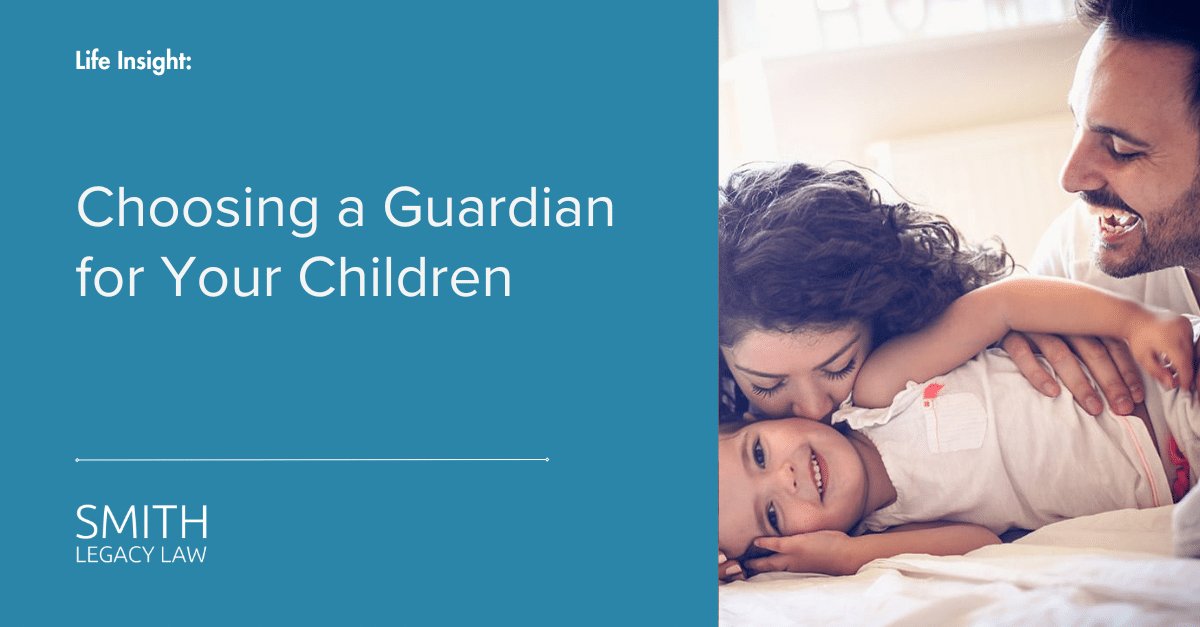Your children mean the world to you and the last thing you probably want to think about is what would happen to them if you were gone. Choosing who will be the guardian of your minor children is likely one of the hardest but most important decisions you will make as a parent when it comes to your estate plan. Selecting a guardian is one of the top reasons that parents avoid drafting a will. This is because they often do not want to think about it, do not know who to choose, and/or cannot agree on who to choose.
What Factors Should You Consider When Choosing a Guardian for Your Minor Children?
Who you choose to name as your children’s potential guardian is an extremely important decision. You should not just pick someone because they are your best friend or closest relative. Instead, there are several characteristics that you should look for when naming a guardian, including:
- Parenting skills. The guardian will be raising your children, so it is important to think about your parenting style and who coincides best with that. Further, parenting is difficult and completely changes your life. Does the person you’re naming have children of their own? If not, have they been around children before? Do they have the capacity to learn how to be a parent? Do they want to act as a parent? Is parenting conducive to their lifestyle or are they willing to adapt their lifestyle to take on the guardianship role?
- Location and living situation. If something happened to you, where do you want your children to live? Is it your expectation that your chosen guardian will move into your home? Or will your minor children move into the guardian’s home? It is critical to think about your wishes as well as to discuss them with the potential guardian to ensure you are on the same page. Keep in mind that your children’s life is going to be uprooted enough if you pass away prematurely. If possible, you may want to choose a guardian who would allow your children to stay as close to home as possible, so they can remain in the same school district or somewhere familiar, and continue interacting with friends.
- Religious and moral beliefs. If you have specific religious and/or moral beliefs, choosing a guardian who follows those same beliefs, or at the very least is willing to teach them to your children, is crucial. You want your children to be raised with the same principles and traditions that they would if they were being raised by you.
- Financial situation. Becoming the guardian of a child does place an added financial burden on the guardian. This is why it is important to set up trusts for your children or create an estate plan that provides for your children to minimize the impact on the guardian’s finances. It is also important to look at the financial security of the guardian to make sure that he or she can provide a suitable and stable home for your children.
- Age and stage of life. You want to consider whether your guardian is likely to be living, healthy, and willing to take on the responsibility of guardianship until your youngest child reaches adulthood.
How Many Guardians Should You Name?
If you are able, it is a good idea to name multiple guardians in successive order. This will help ensure that there is someone available to be a guardian in the event your first choice is unwilling or unable to serve. However, you should only name one guardian at a time. Often, people want to name a couple, but they don’t consider what happens if that couple were to get divorced or if one spouse were to pass away. You must be comfortable with the other individual still having the authority to act as guardian. If you aren’t, make a different selection.
Choosing a guardian can be a difficult decision but if you don’t select someone and you pass away, it will go to a judge to decide, with the risk that your children will end up with someone you didn’t want. You also lose the ability to create a trust to assist the guardian with expenses and control when your children gain access to your assets.
If you are ready to create or update your estate plan, contact us. Our attorneys can help you develop a comprehensive estate plan that meets your and your family’s needs.
